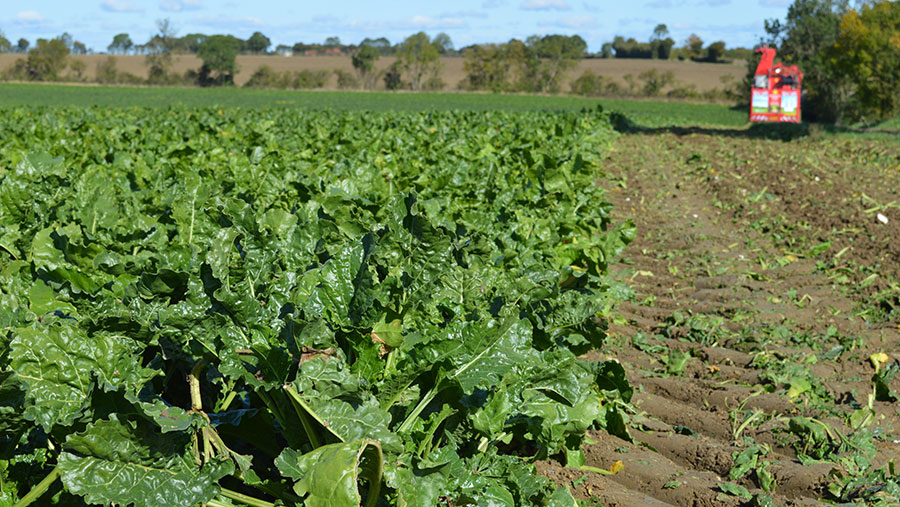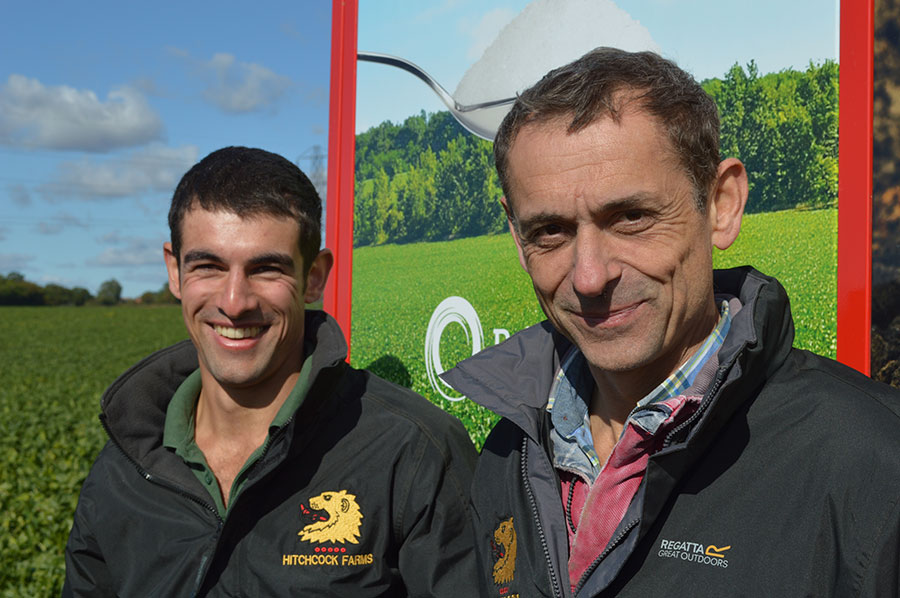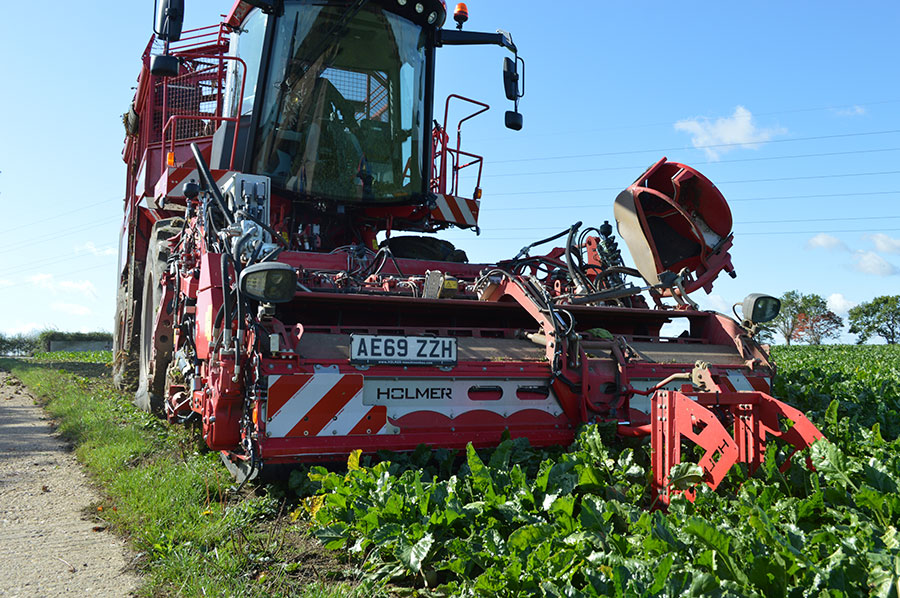Sugar beet harvest shows early high yields

Early sugar beet liftings are showing high yields, with Guy and Will Hitchcock predicting that output will be higher than the five-year average on their Suffolk family farm.
Beet harvesting started in the last few days of September on their heavy land farm, and they are confident yields will exceed 90t/ha.
Sugar contents also started off high at 18.5%, as the dry early summer weather helped concentrate sugar levels, which is reflected in other high sugar contents in early crops from the Bury St Edmunds factory area.
“We will be disappointed if we don’t do more than 90t/ha, and it would be nice to be averaging 100t/ha this year,” says Guy, who farms with his son Will and his wife and daughter.
See also: Sugar beet harvest set to be higher helped by better yields

From left: Will Hitchcock and Guy Hitchcock
New harvester
Harvesting will be helped by the purchase of a new six-row Holmer T4-30 harvester for this season, costing £440,000, to lift the Hitchcocks’ 148ha of beet and a further 1,200ha of contracted harvesting beet land.
Last year, the farm achieved average beet yields of 93t/ha, with a high of 111t/ha, and in 2017 – which saw record beet yields across the country – average yields were 108t/ha, with a top performance of 116t/ha.
“It’s been an encouraging start and we are looking forward to a good year,” Guy adds.
Lifting started on 12 September and their contract work has seen them harvest yields of 91t/ha on fertile marshland at Orford on the Suffolk coast and then dropping to about 60t/ha on lighter land.

Dry summer weather
Crops on light land suffered in the dry early summer weather, but on the heavier soils, such as their own, yields are not likely to have suffered too badly.
The Hitchcocks aim to lift most of their crop on their heavy land farm by the end of November at Chapel Farm Ringshall, just south of Stowmarket, where they farm 700ha, while they will continue to lift beet on light contracted land until the end of February.
The farm was one of first to grow beet in Britain in 1928 and has not missed a year since then.
The crop gained from a favourable season, starting with good weather conditions at drilling and then rain in June, which was key to keeping the heavy land crop growing through a dry August and September.
Sugar beet is grown in a one-in-four-year rotation, along with winter wheat and oilseed rape. This season, the Hitchcocks started using three biostimulant sprays, applied throughout the season.
Crop optimism
Nick Morris, head of central agriculture at beet processor British Sugar, is equally optimistic about the prospects for this season’s crop.
“The national crop shows good potential. It is early days yet, but there has been a positive start to the harvest,” he says.
Of the group’s four processing plants, Bury St Edmunds and Newark in Nottinghamshire opened on 17 September, while dry weather delayed the opening of Wissington in west Norfolk to 30 September and Cantley in east Norfolk is set to open on 7 October.
The group has said it expects yields from this season’s crop – grown by more than 3,000 beet farmers on just over 100,000ha – to be higher than 2018 levels, which will more than offset the small fall in crop area and so produce a bigger overall national crop than 2018’s 1.15m tonnes of white sugar.
Beet yields
Therefore, yields are expected to be higher than 2018’s average of 69t/ha, but probably not as high as the record national yield in 2017 of 83.4t/ha.
Growers have had to grow crops without now-banned neonicotinoid seed treatment this season, which have meant extra spray costs to control peach-potato aphids, which spread virus yellows disease.
Will says they used one spray of each of the two cleared insecticides for aphid control in sugar beet Teppeki (flonicamid) and Biscaya (thiacloprid) after a low winter kill of aphids.
Mr Morris estimates beet growers have used on average one-and-a-half insecticides sprays this year to control the virus spreading aphids.
UK sugar beet harvests |
||
| Year | White sugar production | Average beet yields |
| 2017 | 1.37m tonnes | 83.4t/ha |
| 2018 | 1.15m tonnes | 69t/ha |
| 2019 | Above 1.15m tonnes | |
| The record crop of 1.45m tonnes of white sugar was in 2014 | ||

